Learn more about my approach
Modalities
EMDR
Eye Movement Desensitization and Reprocessing (EMDR) therapy is an evidence-based approach used to help individuals process and heal from distressing or traumatic memories. It involves recalling these memories while simultaneously engaging in bilateral stimulation, such as guided eye movements, which helps reduce the emotional intensity and distress associated with the memories. EMDR supports clients in reprocessing experiences to promote adaptive resolution and reduce trauma-related symptoms.
Somatic
Somatic therapy is a body-centered therapeutic approach that integrates awareness of physical sensations with traditional talk therapy to support emotional healing and regulation. It helps clients notice how trauma and stress are held in the body, using techniques such as grounding, breathwork, and gentle movement to release tension, increase resilience, and foster a sense of safety and connection within the body.
Narrative
Narrative therapy is a collaborative, strength-based approach that views individuals as separate from their problems and emphasizes the stories people tell about their lives. It helps clients explore and re-author these stories in ways that align with their values, strengths, and preferred identities, allowing them to reduce the influence of problems and create new, empowering narratives.
Emotionally-focused
Emotionally Focused Therapy (EFT) is an attachment-based, structured approach often used with couples to improve emotional connection and relationship security. It focuses on identifying and transforming patterns of interaction that create disconnection while helping partners express underlying emotions and needs to each other, fostering safer, more responsive, and supportive bonds.
Solution-Focused
Solution-focused therapy is a goal-oriented, brief therapy approach that emphasizes clients’ strengths and resources to build solutions rather than focusing on problems. It helps clients identify their preferred future and the steps needed to achieve it by exploring what is already working and highlighting small, achievable changes to support progress.
Existential
Existential therapy is a humanistic approach that focuses on exploring clients’ experiences of meaning, freedom, choice, and responsibility in their lives. It encourages clients to confront existential concerns such as isolation, mortality, and the search for purpose, helping them to live more authentically and align their actions with their values. The therapist’s role is to support clients in increasing self-awareness, taking responsibility for choices, and embracing the freedom to create meaningful change in their lives.
What can therapy help with?
-
Therapy can be a great space to explore all facets of your identity to align more authentically with your true self. In particular, I have extensive experience supporting clients who are at every stage and any point on the spectrum of getting curious about their gender identity and/or transition process. I draw from both professional and personal experience to create a safe space for you to figure out who you are and advocate, embrace, and be excited in being so.
-
Neurodivergent is an umbrella term encompassing a wide range of neurotypes and I know what it’s like and how important it is to understand yours. While I am adept working with a large variety of neurotypes, often I see clients who are figuring out their ADHD and/or Autistic identity. I am here to encourage and support you in this process.
-
I work with all relationship structures, including those that fall outside of mononormative standards. I have experience with folks who are just starting to restructure their relationship, mono-poly relationships, established polyamorous relationships, and queer platonic partnerships. However you show up in the therapy space, I am here to support you and your relationship(s).
-
Relational trauma is so incredibly impactful and the intersection of identity and experiences makes this form of trauma all the more nuanced. Often times, when we hold marginalized identities we experience relational trauma at higher rates and with greater complexity. I often say, “trauma happens in relationship and is healed in relationship,” and I am here to help you figure out just that— how to heal and be in healthy relationship with yourself and others.
-
Worrying about the future is absolutely normal, but it can become imbalanced and interfere too greatly with our present. Also, with the state of the world, future uncertainty and anxiety is pervasive and almost unavoidable. Therapy with me can be a supportive space to navigate these feelings in order to bolster your life in the present while maintaining hope for the future.
-
Developing a solid foundation of self-worth is so, so important. Unfortunately, a lot of us have that challenged throughout life for a variety of reasons. I am a firm believer that self-worth is a human birthright and absolutely accessible to all of us. I am here to help you navigate and build/rebuild your innate sense of self-worth and have a stronger self-esteem.
-
Body image struggles and disordered eating are difficult to deal with. Very. No matter where your difficulties stem from, I am here to help you figure it out with gentle curiosity and address the root cause while finding new ways to cope and work towards an unencumbered view of yourself. We will address familial, social, interpersonal, and systemic causes of body image struggles to support a stronger view of yourself and increased comfort in your own skin.
-
Work takes up a lot of our time and energy. Whether we are navigating a long-term career, making a change, or considering our options, in the current state of the world, work and making money are huge life stressors. The added layer of being queer and/or neurodivergent can further complicate this area of our lives. I have a lot of experience supporting clients at various points in their work life to find balance, fulfillment, and resilience. My best hope is to help you figure out how to find a role that aligns closely to your values and lifestyle needs where you feel supported and can advocate for yourself. Whatever you’re coming to therapy with in regards to work stress, I’m here to help you sort through it.
-
Please reach out if you’re interested in learning more about how i can support you, this is not a comprehensive list but rather an overview of common concerns that I see in the therapy room. I am happy to discuss how I can best support you and have a wide skill range that gives me the ability to meet my clients where they’re at.
Get started with therapy
Virtual Therapy in Virginia & Colorado
Ready to start? Reach out to schedule a consultation!
elliot@neurospacetherapy.com
804-372-3593
